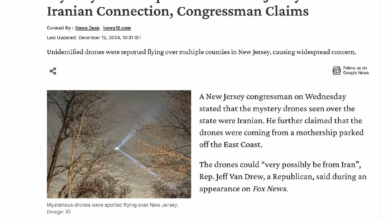Japan’s New Prime Minister Joins UAP Research Group: What This Means for National Security

Shigeru Ishiba Appointed as Japan’s New Prime Minister: A Look at His Stance on UAPs
In a surprising turn of events, Shigeru Ishiba has been appointed as Japan’s new Prime Minister, and his extensive background offers a fresh perspective on a topic that’s been gaining traction worldwide: Unidentified Aerial Phenomena (UAPs).
Ishiba isn’t just stepping into a political role; he’s a founding member of a parliamentary group dedicated to studying these mysterious aerial occurrences. His involvement highlights a growing interest in addressing what many consider to be a legitimate topic of national security and scientific inquiry.
Before this latest political shift, Ishiba served as Japan’s defense minister from 2007 to 2008. During that time, he demonstrated a proactive approach to military and defense policies, and he has continued to voice his thoughts on Japan’s potential responses to UFO sightings in its airspace. His hypothetical discussions on the government’s protocols for unidentified aerial encounters suggest he is not one to shy away from addressing complex and often controversial issues.
As he takes the helm as Prime Minister, many are curious about how Ishiba will integrate his unique interests and experiences into his leadership. His dual focus on infrastructural stability and national defense, combined with an openness to exploring the unknown, could pave the way for uncharted discussions in the Japanese government.
Stay tuned as we watch how Ishiba’s leadership may influence Japan’s approach to UFOs, defense policies, and even public discourse around UAP research. With a new leader in place, the nation stands on the brink of potential changes that could reshape perceptions of the skies above.




